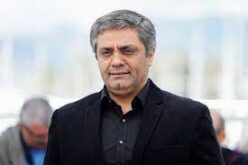Al-Monitor – Iran’s United Nations envoy said Tehran is not seeking to instigate any regional wars and would only get involved in the Israel-Hamas conflict if its national security interest is threatened, but he warned that an increased US presence in the region leaves it more exposed to an attack.
Iran’s permanent representative to the UN, Saeid Iravani, told Al-Monitor that a beefed up American military presence in the Middle East is not a deterrent for Iran to enter the war if need be.
Iravani said that Washington’s increased military posture in the region, boosting allies’ missile defenses, dispatching aircraft carriers and a submarine, is not equivalent to deterrence.
“Surprisingly, military experts contend that when a military power positions its facilities and forces near a conflict zone, it signifies a display of strength without necessarily intending to engage in the conflict. This positioning can actually leave them exposed to potential harm and attacks,” he said.
Iran proxies intensify attacks
Iran-backed proxies in Iraq and Syria have launched more than 60 attacks against US forces since the war between Israel and Hamas started on Oct. 7. Washington responded by striking at Iranian facilities inside Syria at least three times.
Israel said on Sunday that Yemen’s Houthis had seized a British-owned and Japanese-operated cargo ship in the southern Red Sea, describing the incident as an “Iranian act of terrorism” with consequences for international maritime security.
Sunset transits 🌅 🛳️
The Nimitz-class nuclear-powered aircraft carrier USS Dwight D. Eisenhower (CVN 69) transits the Suez Canal, Nov. 4.
📸: MC2 Keith Nowak#SunsetSunday pic.twitter.com/Z8aXgsKTca— U.S. Navy (@USNavy) November 12, 2023
The Houthis said they had seized a ship in that area but described it as Israeli. “We are treating the ship’s crew in accordance with Islamic principles and values,” a spokesperson for the group said, making no reference to the Israeli account.
Writing on X, formerly Twitter, the Israel Defense Forces said the vessel was British and no Israelis were on it. The IDF said the ship was “staffed by civilians of various nationalities, not including Israelis” and had left Turkey headed for India.
The Iran-backed Houthis have been launching long-range missile and drone salvoes at Israel in solidarity with the Palestinian Hamas militants.
Iravani did not say if the increased attacks are linked to Iran or if his government is deterred. “The ongoing events in Gaza represent a confluence of various war crimes. Iran’s primary and pressing demand is an immediate cessation of hostilities against civilians, the lifting of the blockade and the swift dispatch of humanitarian aid to Gaza,” he said.
He said the increased attacks in Yemen, Iraq, Syria and Lebanon are evidence of how the “Resistance Front” operates “as an interconnected system with shared overarching objectives while maintaining independent national strategies.”
For instance, he added, “During the fight against the Islamic State, the Palestinian faction of the Resistance Front opted not to engage in combat against ISIS in Syria and Iraq as it did not align with their primary focus. This decision was acknowledged and accepted by other components of the ‘Resistance Front,’” he argued.
Tehran won’t instigate war
He said that Tehran has no intention to instigate a war. “Pre-emptive war finds no place in the national defense doctrine of the Islamic Republic of Iran. However, the Iranian armed forces bear the responsibility of defending the nation whenever its national security or vital interests face threats from any external party or power. Iran does not seek to instigate any war but remains prepared to defend itself in response to varied threats, adapting its response according to the nature of the threat and the geographical context,” he said.
Asked about a Reuters story last week that revealed that the Iranian leadership turned down a request from Hamas to lend a hand in the fight, Iravani repeated Iran’s position against Israel as “an enduring threat not only to the Islamic world but also to the broader region and the globe,” adding that Iran would continue to boost Hamas’ support.
Questioned on the two-state solution, the senior Iranian official reasserted that his country stands in opposition to the 1948 partition plan. “The unfolding events spanning 75 years affirm Iran’s and other dissenting nations’ concerns expressed in 1948 about erasing Palestine from the global map. Despite the Security Council’s directive 56 years ago to the Israeli regime to evacuate the territories occupied during the 1967 war, no substantial action has been taken. Given this historical inertia, prospects for future compliance seem remote,” he said.
Iravani added, however, “While Iran’s proposed plan stands apart from the envisioned two-state solution, we will not object to the Islamic world’s endeavor to establish an independent and sovereign Palestinian state with Jerusalem as its capital.”
Saudi normalization at ‘impasse’
Asked how Iran sees the impact of this war on Saudi Arabia’s normalization prospects with Israel as well as the wider Abraham Accords, Iravani said, “The current unity witnessed across the Islamic world in support of the rights of Palestinians is unprecedented in the history of the occupation. The magnitude of atrocities perpetrated by the Zionist regime in Gaza is profoundly impactful and enduring, which is why, we believe, the prospect of normalizing relations with this regime in the foreseeable future has reached an impasse,” he said.
Iravani reiterated that Iran was neither involved in the Oct. 7 Hamas attack on Israel nor had prior knowledge of it despite Israeli allegations that Tehran was involved.
“The operation caught the occupying regime off guard, striking them unexpectedly,” he said.
In the aftermath of the war, “the most viable and realistic solution would involve governance in Gaza by elected Palestinian leaders chosen by the people of Gaza themselves. Decisions about Gaza should be made autonomously by its residents, without external imposition or interference from other entities. No one has the right to take a decision on behalf of Gazans,” Iravani concluded.
The Iranian mission to the United Nations in New York emphasized 21 points concerning their view of the Gaza war, including arguments that “defending Israel has become a costly endeavor” for the Washington and that Hamas has seen “increased support from the people of the West Bank” following the Oct. 7 attacks.
 Shabtabnews In this dark night, I have lost my way – Arise from a corner, oh you the star of guidance.
Shabtabnews In this dark night, I have lost my way – Arise from a corner, oh you the star of guidance.



